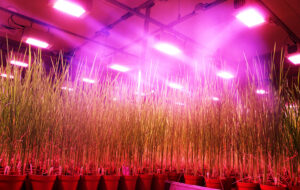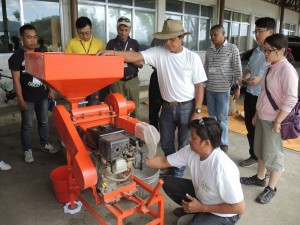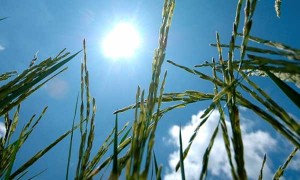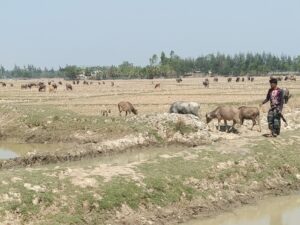The Government of Uttar Pradesh in India is focusing on improving the climate resilience of its agriculture sector.
Water management in rice production is seen as a way for reducing methane gas emissions and increasing yields.
As an alternative to traditional transplanted rice, direct-seeded rice helps reduce its environmental footprint and labor requirements.
Read the story @The Times of India
Weed management in dry direct-seeded rice: A review on challenges and opportunities for sustainable rice production
Dry direct-seeded rice (DDSR) offers several advantages: rapid planting, easy mechanization, less labor and water requirement, and early maturity with fewer environmental footprints. Despite these recompenses, the major snag with practicing DDSR is the potential biotic threat posed by weeds. The yield losses under DDSR are estimated as high as 75%. Thus, weed management shares a very high relative importance, ranking among different agronomic management options for higher productivity in DDSR.
Seed priming with potassium nitrate and gibberellic acid enhances the performance of dry direct-seeded rice in northwest India
Dry direct-seeded rice (DDSR) has emerged as a socio-economically viable and environmentally promising alternative to puddled transplanting to achieve productivity gains with lower water and labor utilization, production costs, and greenhouse gas emissions. Risks of poor and non-uniform crop establishment and higher weed infestations are some of the constraints in the wide-scale adoption of DDSR. The rapid and uniform emergence with early vigor can lead to uniform and good crop establishment, which is crucial for attaining full yield potential and suppressing weeds in DDSR.
Research to improve water-use efficiency in rice
From its establishment, IRRI has made tremendous efforts to ensure that national institutes across many countries have access to the improved technologies developed at its Zeigler Experiment Station (ZES). IRRI was established before climate change and competition for water resources became widely accepted as significant risks to agricultural production. Therefore, the initial focus of water-use efficiency research at IRRI was on rainfed rice production systems.







